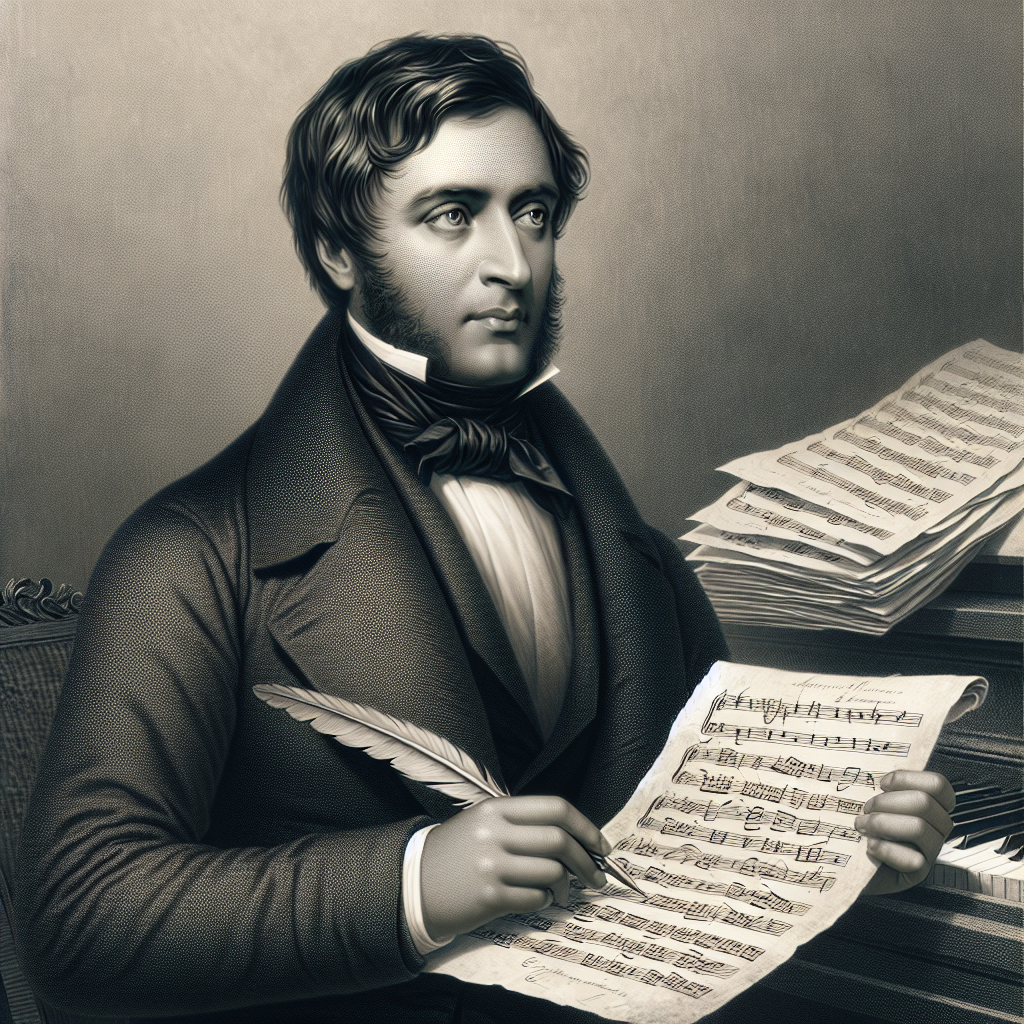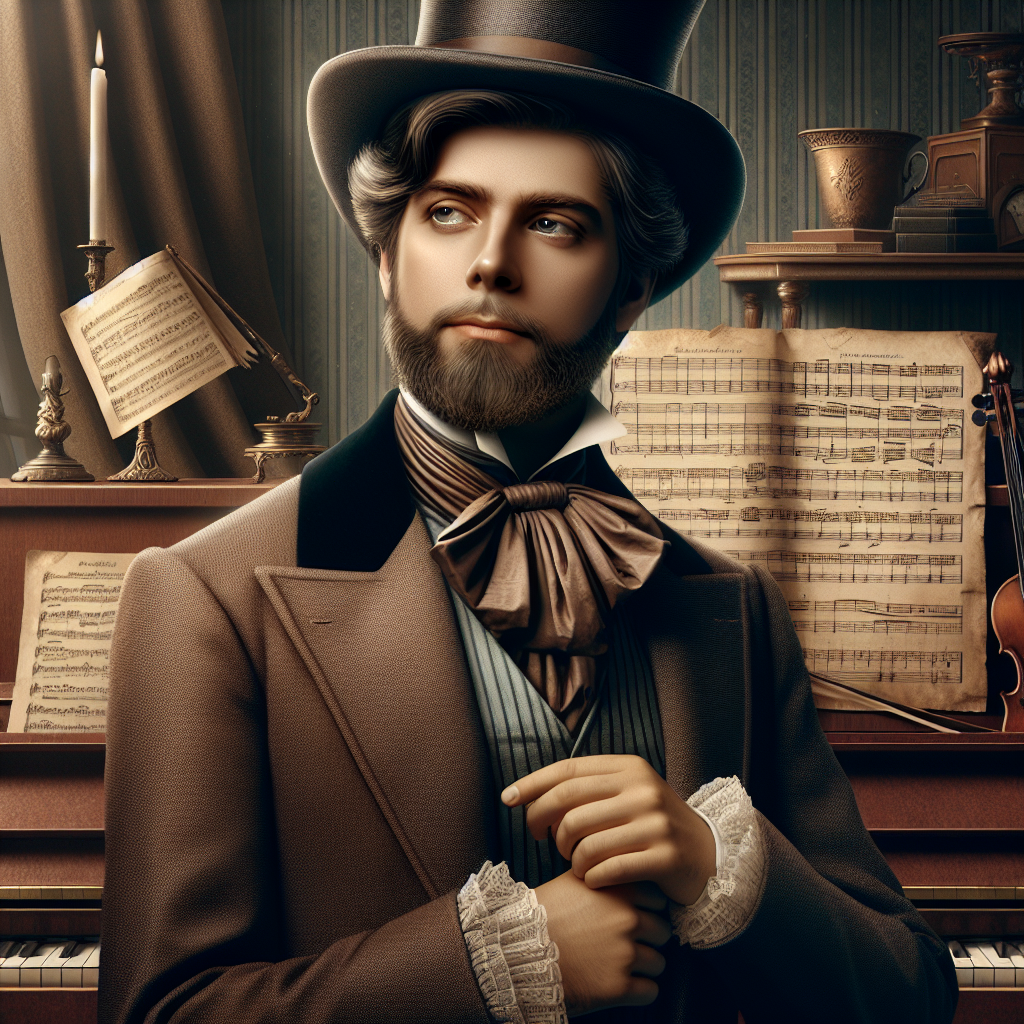
Prince Lichnowsky – Beethoven’s Patron and Friend
Ludwig van Beethoven, one of the greatest composers in the western classical tradition, enjoyed a variety of relationships throughout his lifetime. Some were stormy and tumultuous, while others offered unwavering support and patronage. Among his most notable supporters and personal friends was Prince Karl Lichnowsky, a dedicated patron who played a significant role in Beethoven’s career and personal life. This article explores the life and history of Beethoven, focusing particularly on his relationship with Prince Lichnowsky.
Introduction: The Early Life of Ludwig van Beethoven
Ludwig van Beethoven was born in Bonn, Germany, on December 17, 1770, into a family of musicians. His father, Johann van Beethoven, was a singer in the court chapel of the Elector of Cologne. Recognizing his son’s prodigious talent at an early age, Johann endeavored to transform Ludwig into the next musical prodigy, much like Mozart. Beethoven’s early musical training was rigorous, but it quickly became evident that he possessed an extraordinary musical gift.
Beethoven moved to Vienna in 1792, the heart of European music at the time, to study under Joseph Haydn. It was here that Beethoven began to compose in earnest, and thanks to his undeniable talent, he rapidly gained attention and respect in the musical circles of Vienna. A pivotal aspect of Beethoven’s career included the support and patronage he received from the nobles and aristocrats, one of whom was Prince Karl Lichnowsky.
Prince Karl Lichnowsky: Beethoven’s Patron and Protector
Prince Karl Lichnowsky (1761-1814) was an influential aristocrat in Vienna, known for his passion for music and his generosity towards artists. He was a talented amateur pianist and had been a student of Mozart. When he met Beethoven in the early 1790s, he was immediately captivated by the young composer’s genius and resolved to support him. Lichnowsky provided Beethoven with financial assistance, a place to live, and introduced him to other influential figures in Vienna’s cultural scene.
The relationship was not merely transactional for either party. Beethoven found in Lichnowsky a friend and confidant. The prince’s support allowed Beethoven to focus intensely on his compositions without the distraction of financial pressures. This patronage facilitated the creation of some of Beethoven’s early successes, including his first symphonies and piano sonatas.
One landmark moment in their relationship was Lichnowsky’s gift of a set of valuable Haydn string quartets to Beethoven. This gesture symbolized his deep belief in Beethoven’s musical future and his commitment to supporting his career. Historians often cite this as a defining moment that strengthened their professional and personal bond.
Beethoven’s Residency: The Benefactor’s Home
One of the most significant contributions Lichnowsky made to Beethoven’s life was providing him with a place to stay. The Prince invited Beethoven to reside in his home, a luxurious palace that offered the composer both comfort and a conducive environment for his work.
During these years, Beethoven composed prolifically. Under Lichnowsky’s roof, he wrote some of his most iconic works, including the “Pathetique Sonata” and his first two symphonies. The environment and resources that Lichnowsky provided were invaluable to Beethoven at this stage in his career. Furthermore, living in the princely palace gave Beethoven access to the elite circles of Vienna, where his music was performed and praised, further establishing his reputation.
However, Beethoven’s fiercely independent nature sometimes clashed with the expectations of his patrons, including Lichnowsky. Despite these occasional tensions, the mutual respect and admiration between the composer and his benefactor were evident. Lichnowsky’s support remained steadfast, even as Beethoven’s fame and fortune began to diverge from the Prince’s initial patronage.

Disagreements and Reconciliations
As with any relationship, Beethoven and Lichnowsky experienced their share of disagreements. Beethoven’s strong character and artistic temperament often led to disputes with his patrons. One notable incident occurred in 1806, when a major disagreement over Beethoven’s refusal to perform for invading French officers resulted in a heated fallout between Beethoven and Lichnowsky.
This personal and professional disagreement led Beethoven to storm out of the Lichnowsky estate, famously uttering that he did not need the Prince, declaring, “Prince, what you are, you are by circumstance and birth; what I am, I am through myself.” This fallout was significant as it marked a turning point in their relationship. Despite this, the bond never completely severed. The respect and mutual admiration they had built over years couldn’t be easily undone.
Over time, Lichnowsky and Beethoven reconciled, recognizing the importance of their friendship and collaboration. Their shared history and the influence they had on each other’s lives left an indelible mark on Beethoven’s career and the broader world of classical music.
Lichnowsky’s Legacy and Impact on Beethoven’s Music
The patronage of Prince Lichnowsky extended beyond mere financial support; it was also an endorsement of Beethoven’s unparalleled talent. Lichnowsky’s belief in Beethoven’s genius allowed the composer to take risks and pursue his ambitious projects. This patronage was directly responsible for some of Beethoven’s most famous early works.
Moreover, Lichnowsky’s palatial residence provided a venue for some of Beethoven’s early performances, including private concerts that drew the attention of Vienna’s elite. These performances were integral in establishing Beethoven’s reputation as a leading composer of his time. The Prince’s unwavering support also provided Beethoven with the confidence to diverge from traditional compositions and explore more innovative musical expressions.
To this day, historians look back at Lichnowsky’s role in Beethoven’s life as a classic example of the indispensable relationship between artists and their patrons. The financial security and emotional support offered by Lichnowsky allowed Beethoven to transcend the constraints of his time, ultimately laying the foundation for his transition into one of the most significant composers in music history.
Beethoven’s Tribute: The Dedications
Beethoven’s profound gratitude toward Lichnowsky is evident in the dedications of several key works. The composer dedicated multiple compositions to the Prince, including the “Piano Sonata No. 8 in C minor,” popularly known as the ‘Pathetique,’ one of his most revered works.
These dedications were not merely gestures of courtesy; they were testaments to the deep respect Beethoven held for Lichnowsky and his contributions to his career. By dedicating these works, Beethoven etched the Prince’s name into the annals of music history, ensuring that Lichnowsky’s role in his life would not be forgotten. The dedications also symbolized Beethoven’s acknowledgment of the crucial support he received during his formative years in Vienna.
Moreover, the works dedicated to Lichnowsky themselves bear witness to the creative freedom and the nurturing environment the Prince provided. The exploration of new forms, the emotional depth, and the technical brilliance of these compositions speak volumes about the period of growth and innovation Beethoven experienced under Lichnowsky’s patronage.
Conclusion: The Enduring Significance of Lichnowsky’s Patronage
It is an undeniable fact that Prince Karl Lichnowsky played an instrumental role in Beethoven’s early career. The patronage and friendship offered by Lichnowsky were not only a source of financial stability but also of emotional and creative encouragement. The Prince believed in Beethoven’s genius at a time when the young composer most needed support, and this belief was repaid many times over through the masterpieces Beethoven created during and beyond their association.
Their relationship serves as a powerful reminder of the impact that patronage can have on the arts. Whilst Beethoven is celebrated today for his unparalleled contributions to music, it is essential to recognize the hidden figures who supported and facilitated his ascent. Lichnowsky was one such figure—a patron, a friend, and an advocate for Beethoven’s brilliance.
Reflecting on their relationship also allows us to appreciate the nuanced dynamics between artists and their supporters. It was a symbiotic relationship that enriched both their lives and left a lasting legacy in the world of classical music. While Beethoven’s talent was undoubtedly his own, it flourished in part due to the unstinting support of patrons like Prince Karl Lichnowsky.